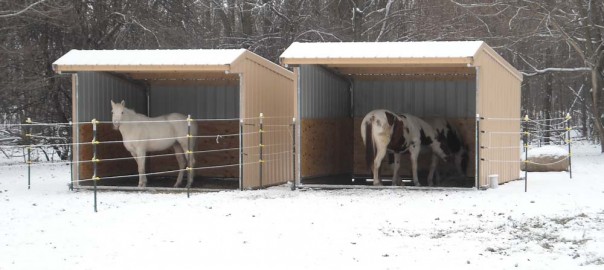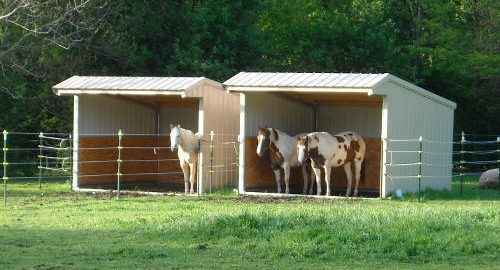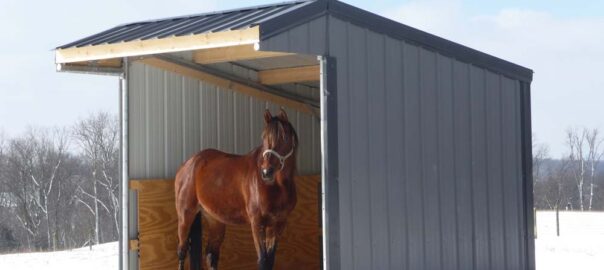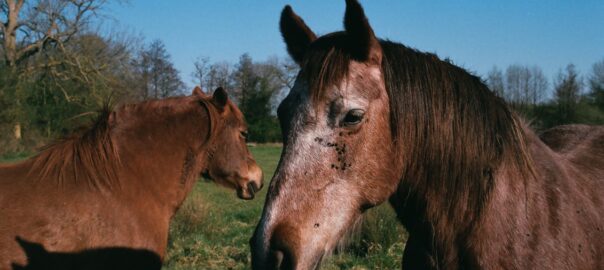Does your horse seem more energetic when turned out in the colder months? It’s likely not for the reason you think. Many horse owners assume their horses run around kicking and bucking in the winter as a way to stay warm but this isn’t necessarily true.
Staying Warm or Releasing Pent-up Energy?
Horses tend to act frisky in the winter, not because it’s cold, but because they have pent-up energy they need to get out. In the summer, horses are offered lots of physical activities and socialization with other horses that help to stimulate them and keep them busy. However, in the winter, most horses living in cold climates are kept indoors to keep them warm. This drastic decrease in physical activity means horses are going to act more lively when they do get to go outside in the winter. Even though it’s colder, it’s important to provide activities for your horse in the winter. If it’s not safe to bring your horse outside because of the weather, you need to provide them with mental stimulation to keep them from getting bored. Teaching your horse new tricks, hiding treats in their hay net, or adding apples to their water bucket, are great ways to keep your horse entertained when you can’t go outside.
Keeping Your Horse Warm
As the temperature starts to drop, there are some things you can do to prepare your horse for winter. Providing adequate shelter for your horse is one of the most important things you can do to keep your horse warm this winter. A three-sided run-in shelter is a great way to provide shelter while also letting your horse decide if they want to be outside. Horses can utilize the shelter to avoid wind, rain, and snow with the freedom to be active in the paddock if the weather permits. When using this kind of shelter for your horse, it is important to remember to provide them with clean, dry straw or shavings to help keep them warm. For the complete list of tips, read our blog post on Preparing Your Horse for Winter Weather.
Whether you’re providing shelter from the hot sun in July or cold, wet snow in January, a run-in shelter for your horse is a great year-round solution to keeping them safe and happy.




